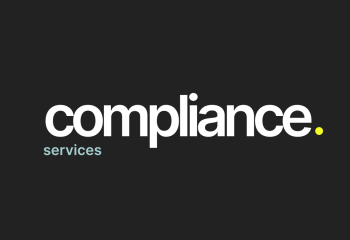SEIZING THE DIGITAL ERA: WHAT BUSINESSES NEED TO KNOW ABOUT THE DIGITAL TECHNOLOGY INDUSTRY LAW
Views: 2174
(1).png)
On June 14, 2025, the Vietnamese National Assembly officially passed the Law on Digital Technology Industry ("Digital Tech Industry Law"), which will take effect on January 1, 2026. This is a groundbreaking law, laying a comprehensive legal foundation for the development of the digital technology industry – a sector identified as a pillar of the digital economy in the coming decade. The Digital Tech Industry Law not only has significance in terms of state management but also represents a strong commitment from Vietnam to international integration, promoting innovation, and elevating the nation's position in the global technology value chain.
I. Overview of Structure and Scope of Application
The Digital Tech Industry Law consists of 06 Chapters and 57 Articles, inheriting from the Information Technology Law 2006 but with a significantly expanded scope. Beyond traditional information technology, the Law comprehensively covers modern digital technology fields such as artificial intelligence (AI), big data, blockchain, Internet of Things (IoT), virtual/augmented reality (VR/AR), cloud computing, and the semiconductor industry.
At the same time, the Law introduces legal mechanisms for the first time in Vietnam's legal system, such as controlled testing mechanisms (sandboxes), a legal framework for digital assets, and regulations for risk management throughout the AI lifecycle. With an approach that aligns with international standards, the Digital Tech Industry Law aims to attract technology investment, foster innovation, and build a sustainable digital ecosystem.
II. Notable Incentive Policies and Breakthrough Regulations
Incentive Policies for Businesses:
One of the key focuses of the Digital Tech Industry Law is a system of incentives and support policies for businesses across the entire technology chain – from research and development (R&D), manufacturing, and testing to product commercialization. Businesses in the digital technology sector will benefit from numerous significant tax incentives, such as:
-
Up to a 50% reduction in corporate income tax (CIT) for an extended period, especially for "Make in Vietnam" projects (Vietnamese enterprises directly involved in most of the production process) or those related to core technologies like AI, Blockchain, and semiconductors. (Clause 4, Article 43)
-
CIT exemption for the first 3 years for profits generated from digital technology industry activities invested in and operated by Vietnamese enterprises abroad and repatriated to Vietnam. (Clause 3, Article 31)
-
R&D expenses are deductible at 200% when determining taxable CIT for regular businesses and up to 300% for small and medium-sized enterprises. (Clauses 5 and 6, Article 15)
-
Additionally, businesses are exempt from import duties on goods that are equipment and components not yet domestically produced, used directly for the production of digital technology products. (Clause 8, Article 55)
-
Besides tax incentives, businesses will also receive priority access to land, infrastructure, credit, and even priority treatment in customs procedures.
-
To attract talent, the Law also stipulates that income from digital technology industry activities for highly qualified employees is exempt from personal income tax (PIT) for the first 5 years. (Clause 3, Article 18)
Regulations on Digital Data Development:
Regarding new technologies, the Digital Tech Industry Law establishes an advanced management framework for AI, including provisions for risk assessment, ensuring transparency, explainability, and accountability for AI systems. Notably, the Law allows for the implementation of a sandbox mechanism – a flexible legal testing environment that enables businesses to test new technology products and business models under close supervision. The sandbox is not only an opportunity for innovative startups but also a stepping stone for the state to refine legal regulations based on practical experience.
Regulations on Digital Assets Management:
The Law on Digital Technology Industry marks a major step forward in Vietnam’s legal framework by, for the first time, codifying the concept of digital assets. Previously, Vietnam’s legal system did not recognize virtual currencies as legal tender and strictly prohibited their use as a means of payment. Official Letter No. 5747/NHNN-PC issued by the State Bank of Vietnam in 2017 and the 2018 Directive implementing the Prime Minister’s Directive No. 10/CT-TTg both affirmed that credit institutions and intermediary payment service providers were not allowed to conduct or support any transactions related to virtual currencies. Although the law did not prohibit individuals from owning virtual currencies as assets, it also did not recognize such assets within the legal system or provide any regulatory framework. As a result, activities such as transactions, transfers, and investments involving digital assets lacked legal clarity, posing significant legal and financial risks for individuals and businesses participating in the market.
In 2023, Vietnam signed a commitment with the Financial Action Task Force (FATF) on anti-money laundering and counter-terrorism financing, which required the establishment of a legal framework for Virtual Assets (VAs) and Virtual Asset Service Providers (VASPs). This was not only an international obligation but also a pressing domestic need to address the long-standing legal gap. The Law on Digital Technology Industry became the first legal document in Vietnam to officially codify the concepts of "digital assets" and "tokenized assets", and to formally recognize them as a type of property under civil law. This lays the foundation for the legal recognition of ownership, transactions, transfers, and the business activities related to digital assets in Vietnam.
According to Article 49 of the Law, digital assets are divided into two main categories:
-
Tokenized assets: digital assets that are established and authenticated through encryption technologies.
-
Virtual assets: digital assets used in transactions, exchanges, or investments, but which are not legal currency or securities
In the past, businesses could own and trade certain types of digital assets, but these activities were not recognized by law, leading to significant risks in the event of disputes. Now, activities such as issuance, custody, transfer, and the establishment of ownership over digital assets are included within an official management framework, creating a clear legal basis for enterprises to develop products and services involving blockchain technology.
Furthermore, Article 50 establishes a mechanism to protect businesses and investors who own digital assets by setting out the rights and obligations of all involved parties. This provides a vital foundation for resolving disputes and allocating responsibilities among issuers, investors, custodians, and other parties in digital asset transactions.
Notably, the law also opens the door for the formalization of business conditions in relation to tokenized assets, such as asset issuance or operating digital asset exchanges. This creates a legitimate environment for domestic fintech companies, reducing the need to register operations abroad. As a result, Vietnam can not only protect local stakeholders but also foster innovation and attract capital flows into the digital asset sector.
However, the current provisions in the Law on Digital Technology Industry remain general and framework-based. Detailed regulations concerning the management of digital assets by sector, business conditions, sandbox mechanisms, and more will be specified by the Government through upcoming decrees and circulars. In the context of a rapidly evolving digital economy, this Law is expected to serve as a critical legal lever to promote innovation, build a transparent digital economy, and enhance national competitiveness in the digital era. Businesses should closely monitor the forthcoming decrees and circulars, particularly those related to digital assets, sandbox mechanisms, and new business conditions. Proactively approaching and implementing the Law on Digital Technology Industry will be key for businesses to increase competitiveness, expand into new markets, and thrive in an increasingly dynamic digital ecosystem.
How ALTAS Can Assist You:
ALTAS LAW is uniquely positioned to assist your business in navigating these complex administrative reforms. We offer a comprehensive suite of legal and business services designed to provide seamless support during this transition period:
• Accounting and Tax Services: We also offer accounting and tax services to help your business manage the financial implications, including tax planning, tax settlement, tax auditing and tax refund.
• Licensing & Regulatory Compliance: We will meticulously review your existing licenses and permits, advise on necessary amendments or renewals, and guide you through the process of obtaining any new approvals. Our team will also ensure your compliance with all relevant regulatory changes.
Please feel free to reach us via email contact@altas.vn to discuss your specific concerns and explore how we can navigate these reforms successfully.
----
Written by: Mr. Luong Van Chuong (Chris) – Partner Lawyer at ALTAS Law & Senior Legal Assistant Dang Thi Ngoc Lan - ALTAS Law
Date: 26/06/2025














(1).png)


![[LEGAL UPDATE] WHAT TECHNOLOGY SHOULD BE DEPLOYED BY NOTARY OFFICES FOR FULFILMENT OF PERSONAL DATA PROTECTION OBLIGATIONS? [LEGAL UPDATE] WHAT TECHNOLOGY SHOULD BE DEPLOYED BY NOTARY OFFICES FOR FULFILMENT OF PERSONAL DATA PROTECTION OBLIGATIONS?](thumbs/210x144x1/upload/news/legal-update-j-jan2025-2-5840.png)

![[LEGAL UPDATE] KEY HIGHLIGHTS OF THE NEW LAW ON NOTARIZATION 2024 [LEGAL UPDATE] KEY HIGHLIGHTS OF THE NEW LAW ON NOTARIZATION 2024](thumbs/210x144x1/upload/news/legal-update-j-jan2025-6-9279.png)
![[LEGAL UPDATE] ELECTRONIC IDENTIFICATION FOR FOREIGNERS WITHOUT TEMPORARY RESIDENCE CARDS IN VIETNAM [LEGAL UPDATE] ELECTRONIC IDENTIFICATION FOR FOREIGNERS WITHOUT TEMPORARY RESIDENCE CARDS IN VIETNAM](thumbs/210x144x1/upload/news/legal-update-j-jan2025-5-5270.png)
![[LEGAL UPDATE] TRANSITIONING TAX IDENTIFICATION NUMBERS TO PERSONAL IDENTIFICATION NUMBERS FROM JULY 1, 2025: ROADMAP AND PRACTICAL NOTES [LEGAL UPDATE] TRANSITIONING TAX IDENTIFICATION NUMBERS TO PERSONAL IDENTIFICATION NUMBERS FROM JULY 1, 2025: ROADMAP AND PRACTICAL NOTES](thumbs/210x144x1/upload/news/legal-update-j-jan2025-3-6884.png)
![[LEGAL UPDATE] CIRCULAR 03/2025/TT-NHNN - A NEW LEGAL FRAMEWORK FOR INDIRECT INVESTMENT ACCOUNT [LEGAL UPDATE] CIRCULAR 03/2025/TT-NHNN - A NEW LEGAL FRAMEWORK FOR INDIRECT INVESTMENT ACCOUNT](thumbs/210x144x1/upload/news/legal-update-j-jan2025-2-2494.png)







